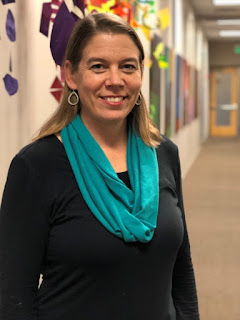Dear Governor Elect Polis:
Congratulations on your election as the next Governor of Colorado. Those of us at Imagine! and in the field of serving people with intellectual and developmental disabilities (I/DD) are looking forward to working with you to ensure that our fellow citizens with disabilities have the opportunity to lead fulfilling lives in their homes and communities.
I’d like to offer a few ideas and/or suggestions about your approach to the system of funding and delivering services in our State. I know these ideas are unsolicited, but you should be aware that Colorado’s approach to serving people with I/DD is incredibly chaotic when compared to other states. A new administration offers an opportunity to reexamine the system, and I’d be remiss if I didn’t at least share some ideas with you.
So here goes.
Continue the work toward eliminating waitlists for services.
Colorado has been incredibly active during the last eight years in working to end wait lists for services for children with severe intellectual and developmental disabilities as well as for those who need part-time, in-home services. However, Colorado's wait list for adults with I/DD who have requested home- and community-based services (HCBS) “as soon as possible” rose 38% between January 2015 and January 2018. Far too many adults (and their parents) are waiting far too long for vital supports.
One important caveat to this plea: don’t try to start anything the State can’t pay for. “Don’t buy the car if you can’t afford the gas and maintenance.” This is a notion that has not captured any attention in Colorado.
Please don’t refer to people with I/DD “vulnerable” as a method of drawing attention
Using a word like “vulnerable” doesn’t emphasize possibilities. It doesn’t highlight strengths. It promotes what people are not. It doesn’t do anything to move us forward in the effort to create a world of opportunity. Our very system of funding and delivering services is built on the use of terms such as vulnerable, and it has led to a system where we ration services based on what people are not capable of doing. A better reference for people with I/DD from a position of having influence might be “powerless.”
Invest in technology
I’m sure you know this: the world of technology is exciting, constantly evolving, and vast in its capabilities. The impact this can have on people of all abilities has been and will continue to be life changing. It doesn’t require an employee with Apple or Microsoft to make an impact. Technology derives from investment, collaboration, innovation, and cultural influences that spark from a simple idea or dream. Unfortunately, State rules, regulations, and approaches aren’t very friendly to, or supportive of, the use of technology in I/DD services. Proper investment in the use of available technologies has shown terrific results in States like Ohio.
Invest in providers
Putting it mildly, the State hasn’t exactly been consistent when it comes to funding private service providers as compared to public State providers. And that’s a mistake, as Colorado has regularly ranked high in terms of outcomes for people in services while simultaneously ranking almost dead last in terms of per capita spending on services. Private providers have shown they can deliver positive outcomes even with limited resources. But in the past decade, they are being squeezed out of services by horribly inadequate rates which have seen almost a 10% reduction relative to the cost of doing business in the last eight years, to the detriment of the State, taxpayers, and people in services.
Focus on deliverables, not just costs
We all get it – the State doesn’t have an unlimited capacity to provide resources to people with I/DD. But when the only solution to limited resources is to cut costs, we’re missing the opportunity to do better, because providers start simply focusing on staying in business instead of innovating or leading. We have realized in the last eight years that cutting costs does not result in better health care. Invest resources in to research and development, and explore other ways for service to be delivered. There are a lot of smart, creative, and passionate people in this field. Let’s support them in being their best.
I could go on, but I don’t want to overwhelm you as you transition to your new role. So I will conclude by saying that creating a world of opportunity for all abilities isn’t a pipe dream. It can happen when governments, communities, providers, families, and people in services believe in the potential of all, and work together so everyone can achieve those potentials. I can’t wait to partner with you to make that happen in Colorado.
Then again, what do I know?




















































